Research Paper on the connections between food and human diseases
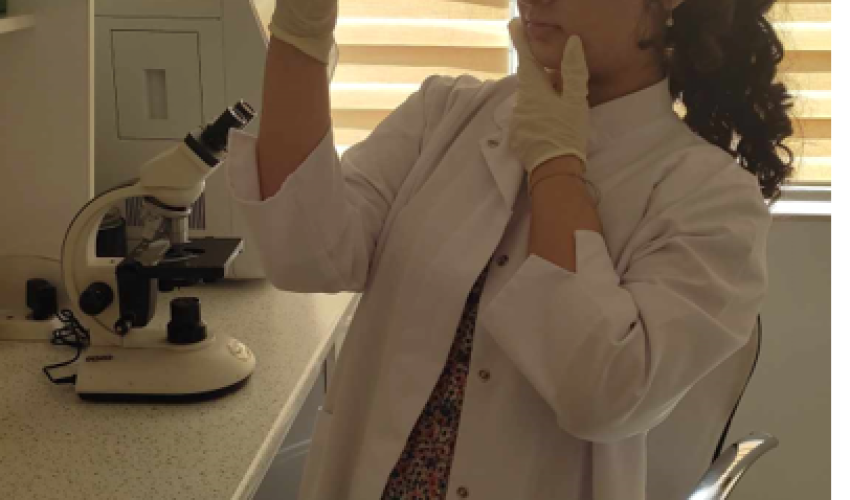
Siddiga Suleymanzade
Baku, Azerbaijan
I had an amazing experience throughout this research paper. Industry experts and professionals involved helped me when brainstorming and discussing my research. The research paper allowed me to explore new ideas and concepts regarding my subject. It was probably the most productive experience that I have been through in my life.
Project description
Processed meat includes bacon, sausages, hot dogs,
salami, corned beef, beef jerky, and ham, as well as canned meat and meat-based sauces.
Keywords: processed meat, sausage, genetically modified organisms, organic food, health, diseases
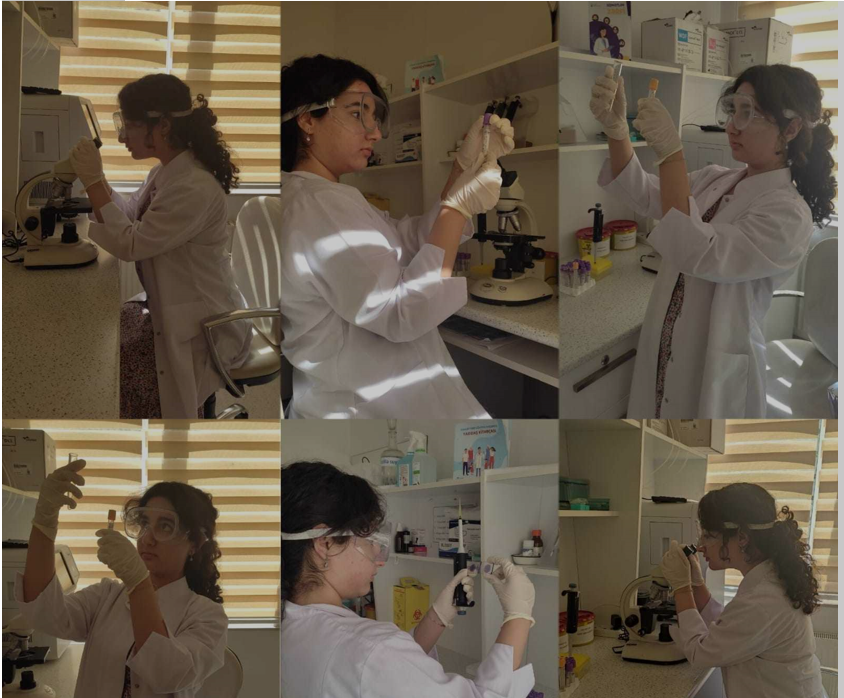
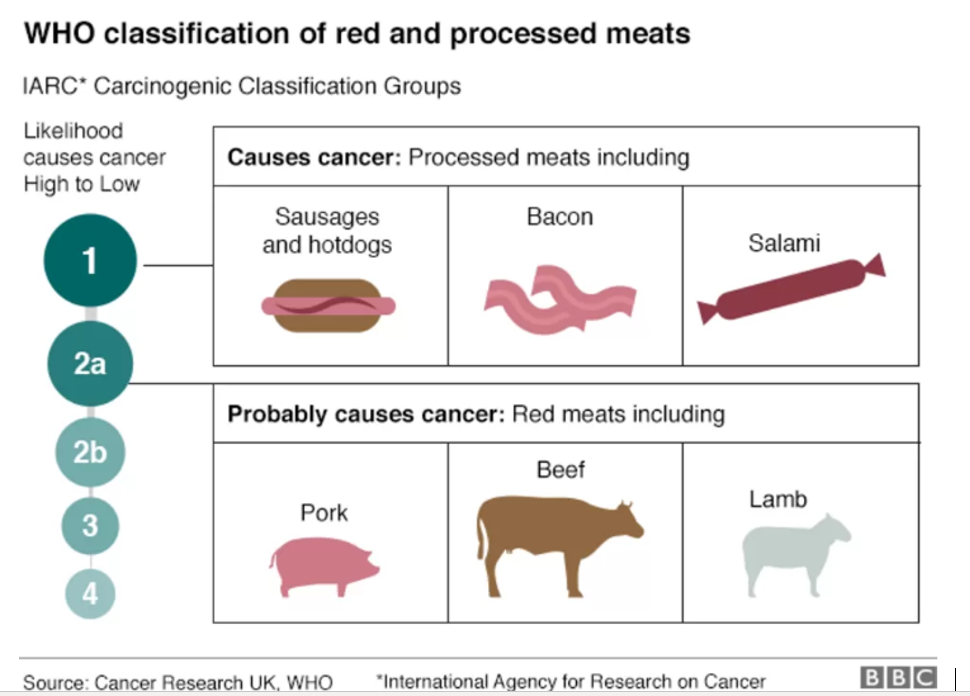
Figure1. WHO classification of red and processed meats

As part of my research, I also visited a local supermarket. Here I managed to find out that processed meat products have become popular among consumers in recent years. They are cheaper than organic products, and easy to produce and sell. They are in high demand.
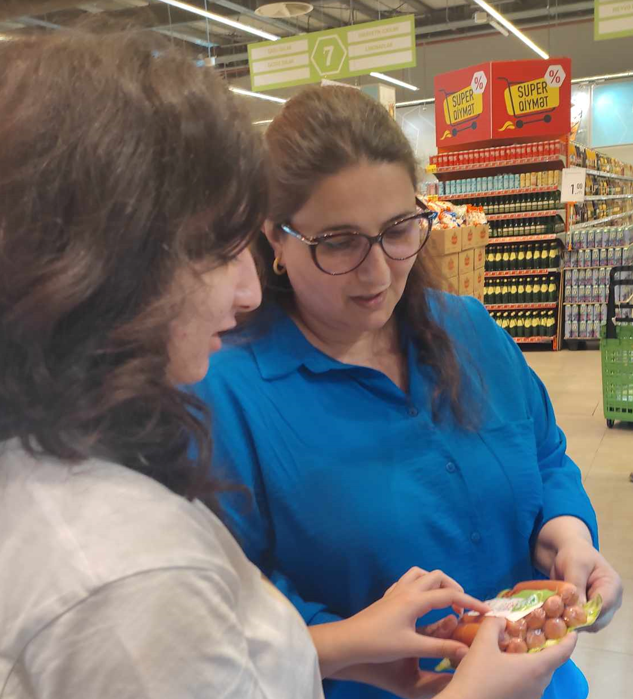
Gulshan Sultanova is a local consumer and I met her at the supermarket. She regularly buys sausages, bacon, and ham. She says that they are relatively cheap and have an attractive flavor. So she often buys processed meat products from the store. The price of natural meat is quite high nowadays, while processed meat products are relatively cheap.
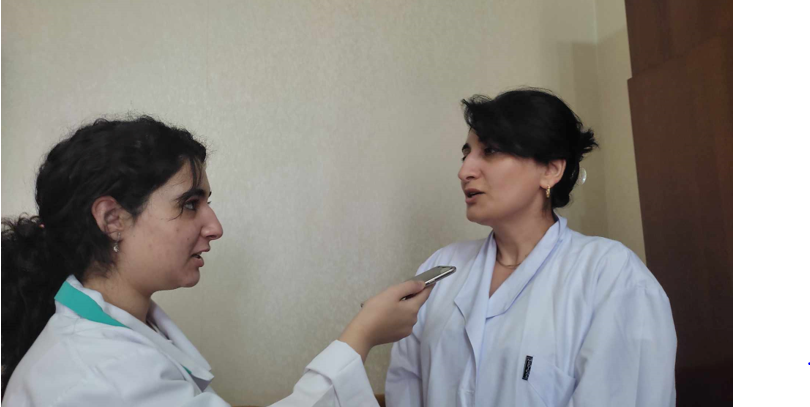
However, according to doctor Seva Huseynova's observations, people who often eat junk food are much more likely to complain of health problems. For example, canned food, convenience foods, and sausages are considered relatively cheap and are in fact unhealthy foods.
The free-range chickens
and chickens raised in cages differ significantly in appearance. Even the color
of the eggs of these chickens is drastically different.

One more thing we
have paid attention to is that in many countries today a kilogram of organic
meat costs much more than a kilogram of sausages or ham. For many people the
answer is obvious: processed meat is much cheaper. And accordingly, cheap meat
cannot be completely healthy and safe. Consequently, we can draw the logical
conclusion that products made of processed meat have a lot of unnatural,
cheap substances and impurities.

The local researcher Kamal Khaliloglu told us that processed meat and genetically modified foods lead to obesity, cancer, cardiovascular disease, high cholesterol, and gastrointestinal disease. Over the past 15-20 years, as the market has become massively flooded with non-organic foods, the number of diseases that are triggered by junk food has increased dramatically.
At the same time,
there are some studies that prove GM foods are safe. For example, a 2016 report
from the U.S. National Academies of Sciences, Engineering, and Medicine
indicates that such foods are not harmful (Genetically
modified food: what are the pros and cons, January 2023).
At the same time, it should be noted that many consumers try to avoid GMO products. And the media plays a feasible role in this.
3. Experiment
To find out how food affects our bodies, I conducted an experiment:
I recruited two volunteers for our experiment. Before starting the experiment, I identified basic health indicators for each participant, such as body weight, blood pressure, bowel function, and digestion. These measurements would serve as a reference point for comparison. Then I developed two different meal plans for the participants, one consisting of balanced healthy foods and the other including mostly processed foods, such as sausage and ham. For four weeks, the participants consumed their respective diets. And I closely monitored their food intake during this period. I regularly assessed various health indicators during the dieting period, including body weight, physique, blood pressure, etc.
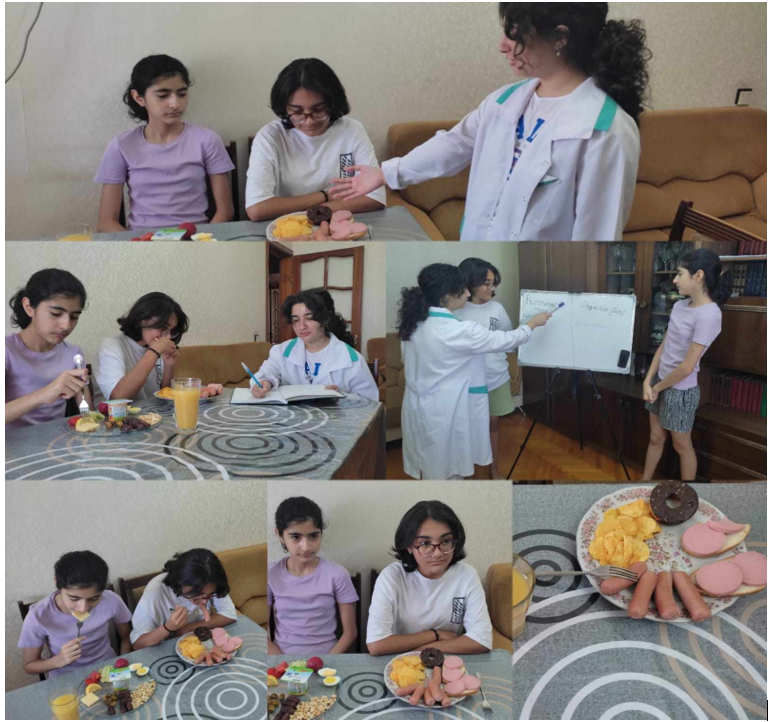
At the end of the feeding period, I analyzed the data collected to determine the differences between the participants who consumed healthy food and the participants who consumed processed food.
It appears
that the participant who ate the processed food:
- tends to gain weight,
- has a weak immune system.
- has a physically passive lifestyle,
- doesn't always feel well,
- digestive problems and constipation,
- nausea and blood pressure.
A participant with a healthy diet:
- is active and full of energy,
- not prone to obesity,
- good digestion, good bowel function,
- strong immune system,
- good memory, etc.
Thus, people who eat organic, healthy foods tend to have a higher level of nutrition in their diet, which is good for their overall health. Organic food usually contains fewer pesticides, hormones, and antibiotics, which is good for the body.
On the other hand, processed and junk food, which is rich in additives, pickles, saturated fats, and sugar, can have a negative impact on health. It usually contains less nutrients and in large quantities can lead to various problems related to digestion and metabolism.
Three tips to reduce your meat intake to a safe level
1. Reduce portions. Instead of two sausages, you can eat one or replace half a serving of meat with vegetables or beans.
2. Identify days on which you will not eat processed meat. Alternatively, you can eat vegetables or fish and other seafood.
3. Try new recipes for chicken, and fish dishes to revitalize your diet.
The processed meat
products and GMO foods directly or indirectly threaten our bodies. Therefore, it
is highly recommended to reduce its intake as much as possible. Food should be
the natural one. The higher the technology of food processing, the more
dangerous it is for our bodies. It is necessary to eat natural products, without
additives. And, of course, the amount of food also plays a huge role. The
products should not contain too much salt, sugar, or artificial additives.
All these have a negative impact on
health in general and on the work of the heart and blood vessels in
particular. As the sages say: "Tell me what you eat and I will tell you
how good your health is”.
References
· Cancer: Carcinogenicity of the consumption of red meat and processed meat (October 2015)
https://www.who.int/news-room/questions-and-answers/item/cancer-carcinogenicity-of-the-consumption-of-red-meat-and-processed-meat
· Carcinogenicity of the consumption of red meat and processed meat (October 2015)
https://www.thelancet.com/journals/lanonc/article/PIIS1470-2045%2815%2900444-1/fulltext#back-bib1
· WHO report says eating of processed meats is carcinogenic: understanding of findings (November 2015)
https://www.hsph.harvard.edu/nutritionsource/2015/11/03/report-says-eating-processed-meat-is-carcinogenic-understanding-the-findings/
· Processed meats do cause cancer-WHO (October 2015)
https://www.bbc.com/news/health-34615621
· Processed meat "early death” link (March 2013)
https://www.bbc.com/news/health-21682779
· Are some processed meats worse for you than others? (June 2022)
https://www.nytimes.com/2022/06/29/well/eat/processed-meats.html
· Why processed meat is bad for you (June 2017)
https://www.healthline.com/nutrition/why-processed-meat-is-bad
· The health effects by GMF: a brief review (February 2021)
https://austinpublishinggroup.com/nutritional-sciences/fulltext/ijns-v6-id1047.php
· GMO and multiple chronic diseases (August 2013)
https://farmandranchfreedom.org/gmo-multiple-chronic-disease/
· Genetically modified food: what are the pros and cons? (January 2023)
https://www.medicalnewstoday.com/articles/324576
www.anews.az
Baku, Azerbaijan
Published August 2023
Siddiga is a 16-year-old high schooler from Baku, Azerbaijan
Graduation year: 2024
Student review
Graduation year: 2024
Student review
I had an amazing experience throughout this research paper. Industry experts and professionals involved helped me when brainstorming and discussing my research. The research paper allowed me to explore new ideas and concepts regarding my subject. It was probably the most productive experience that I have been through in my life.
Project description
Siddiga's project aims to raise
awareness among policymakers and the general public about the detrimental
effects of processed meat. Recent findings from the UN World Health
Organization reveal that processed meats such as sausages, bacon, ham, smoked
meat, and canned meat carry significant risks to human health. The consumption
of processed meat has been linked to various diseases, with a particular
emphasis on carcinogenic conditions. The research also underscores
apprehensions surrounding genetically modified products and their potential
implications for human well-being. In order to better comprehend the
relationship between food and its impact on our bodies, Siddiga conducted a
personal experiment.
Abstract
Recently, the UN
World Health Organization came to the conclusion that processed meat is one of
the causes of various diseases, especially carcinogenic diseases. We are
talking about such products as sausage, bacon, ham, smoked meat, and canned food.
Meat that is processed to extend its shelf life or change its flavor is also
classified as dangerous to health (BBC-Processed meats do cause cancer-WHO, October 2015).
Meanwhile, a
number of influential international organizations have also expressed concern
about the increasing spread of genetically modified products. Some scientists fear
that GMO products may cause harm to the human body (Medical news today- Genetically modified food: what are the pros and
cons? January 2023).
Recently, the Food
Safety Agency of Azerbaijan, my home country, imposed heavy fines on seven sausage-producing companies. According to the official report, these companies were deliberately
misleading consumers about the composition of their products.
According to the
WHO, consuming 50g of processed
meat a day - less than two slices of bacon - increased the chance of developing
colorectal cancer by 18% (The Lancet-Carcinogenicity of the consumption of red meat and
processed meat, October 2015).
But what is processed meat? Processed meat is meat
that has been modified to either extend its shelf life or change the taste,
and the main methods to make these changes are smoking, curing, or adding salt
or preservatives.
Simply putting beef through a mincer does not mean the
resulting mince being "processed”, unless it is modified further.
Keywords: processed meat, sausage, genetically modified organisms, organic food, health, diseases
1. Introduction
So what are the
dangers of processed meats and is there a connection between these foods and
human disease? I conducted research in order to find an answer to this
question. I talked to experts, health professionals, and consumers. But first of
all, I went to the laboratory of one of Baku's medical institutions where I looked
into this topic.

In the laboratory I made some analysis of the
composition of food products.
Obviously, there is
a large content of additives, preservatives, coloring agents, and other
components in sausage and sausage particles. Here you can see how the content
of organic meat and processed meat differs significantly. Specialists helped me
to carry out chemical and biochemical analyses, to trace the reaction of these
products to various substances. The lab work helped me to better understand the
risks that processed meat poses to human health.
Scientists say
that much depends on how meat is processed. For example, cooking at high
temperatures over smoldering coals is known to produce a number of carcinogens:
polycyclic aromatic carbohydrates, heterocyclic aromatic amines, and others (The New York Times- Are some processed meats
worse for you than others, June 2022).
All of these
treatments increase the risk of cancer. Processing at high temperatures, such
as cooking over smoldering coals, common for various types of kebabs, can also
lead to the formation of carcinogens.

Figure1. WHO classification of red and processed meats
2. Discussion
According to
experts, processed meat contains only about 15% of real meat. The remaining
components are starch, various additives to enhance flavor, preservatives for
longer storage, color fixers, antioxidants, and others. About half - about 50%
of sausage products are made up of skin, bones, and by-products. So these
products hardly can be called meat products (Healthline.com - Why processed meat is bad for you, June 2017).

As part of my research, I also visited a local supermarket. Here I managed to find out that processed meat products have become popular among consumers in recent years. They are cheaper than organic products, and easy to produce and sell. They are in high demand.

Gulshan Sultanova is a local consumer and I met her at the supermarket. She regularly buys sausages, bacon, and ham. She says that they are relatively cheap and have an attractive flavor. So she often buys processed meat products from the store. The price of natural meat is quite high nowadays, while processed meat products are relatively cheap.

However, according to doctor Seva Huseynova's observations, people who often eat junk food are much more likely to complain of health problems. For example, canned food, convenience foods, and sausages are considered relatively cheap and are in fact unhealthy foods.
"If you eat
processed meat, the risk of bowel cancer is low, it all depends on how much of
it you eat," says GP. "The results of the study don't mean you should
eliminate red and processed meat from your diet altogether, but if you're
eating too much of it, it's worth considering rethinking your habits. A healthy
diet is all about moderation". Currently, chicken meat is widely consumed in
many countries. Most of the chickens come to our table from broiler farms. The local press claims that certain chemical
additives are added to the chickens’ feed. This is done to make them gain
weight quickly. And this poses a health risk to consumers.

The eggs of hens raised in the wild (left) are characterized by a brightly colored yolk. While the yolk of eggs from hens from broiler companies (right) has an unnatural light color.
The experts say
that the intervention of genetic engineering in this area has dangerous
consequences, first of all, in terms of its effect on human health. The commercial profit of big companies overshadows a matter of human health.
Specialists
believe that the most harmful and dangerous are trans fats. The main danger of
trans fats is that they undergo crazy processing. Behind them are saturated and
harmful animal fats. Their excessive consumption leads to blockage of blood
vessels and arteries, which increases the load on the heart muscle. These foods
include bacon, fatty sausages, smoked and raw smoked sausages.

The local researcher Kamal Khaliloglu told us that processed meat and genetically modified foods lead to obesity, cancer, cardiovascular disease, high cholesterol, and gastrointestinal disease. Over the past 15-20 years, as the market has become massively flooded with non-organic foods, the number of diseases that are triggered by junk food has increased dramatically.
Our diet affects
the entire body, especially the cardiovascular system. The smooth functioning
of the heart depends quite a bit on what we eat. The fact is that there are
very harmful products, the use of which cause huge harm to the heart and blood
vessels. At first, when you are in your 20s and 30s, eating unhealthy foods
doesn't seem to cause serious problems. But as you get older, the effects of
dietary mistakes grow. Your heart and other organs find it harder and harder to
work.
Nutritionists say
that people who prefer a diet rich in vitamins and micronutrients have a much
lower risk of chronic disease. Processed meat products, genetically modified
foods, as well as foods with excessive amounts of sugar and salt, negatively
affect the well-being, weight and overall health of a person. It is believed
that in order for the body to function properly, it is necessary to limit the
consumption of processed meats. These foods negatively affect the
cardiovascular system. The normal human heart rate is between 60 and 100 beats
per minute. If the heart rate lower or higher than this medical help should be
sought.
For better health
and better body function, medical professionals strongly advise to include
more greens, vegetables, fruits, legumes, whole grains and seafood in the diet
as they have a lot of nutrients and vitamins.
As for GMOs, there
is no definite answer to the question about the harm of genetically modified
organisms. As foreign proteins are added to organisms in the modification process, they may be completely unfamiliar to humans.
The immune system
then perceives them as something completely foreign. As a result, an allergic
reaction develops. Also due to the appearance of new proteins, metabolic
disorders are not excluded either.
In 2019, the
journal Food and Chemical Toxicology published a review on how genetically
modified foods are digested by the human body. In the summary, the authors
write, "Convincing evidence shows the presence of DNA from foods (also
genetically modified foods) in the blood and tissues of humans and
animals." (GMO and multiple chronic
diseases, August 2013)
At the same time, it should be noted that many consumers try to avoid GMO products. And the media plays a feasible role in this.
3. Experiment
To find out how food affects our bodies, I conducted an experiment:
I recruited two volunteers for our experiment. Before starting the experiment, I identified basic health indicators for each participant, such as body weight, blood pressure, bowel function, and digestion. These measurements would serve as a reference point for comparison. Then I developed two different meal plans for the participants, one consisting of balanced healthy foods and the other including mostly processed foods, such as sausage and ham. For four weeks, the participants consumed their respective diets. And I closely monitored their food intake during this period. I regularly assessed various health indicators during the dieting period, including body weight, physique, blood pressure, etc.

At the end of the feeding period, I analyzed the data collected to determine the differences between the participants who consumed healthy food and the participants who consumed processed food.
4. Findings:
- tends to gain weight,
- has a weak immune system.
- has a physically passive lifestyle,
- doesn't always feel well,
- digestive problems and constipation,
- nausea and blood pressure.
A participant with a healthy diet:
- is active and full of energy,
- not prone to obesity,
- good digestion, good bowel function,
- strong immune system,
- good memory, etc.
Thus, people who eat organic, healthy foods tend to have a higher level of nutrition in their diet, which is good for their overall health. Organic food usually contains fewer pesticides, hormones, and antibiotics, which is good for the body.
On the other hand, processed and junk food, which is rich in additives, pickles, saturated fats, and sugar, can have a negative impact on health. It usually contains less nutrients and in large quantities can lead to various problems related to digestion and metabolism.
Three tips to reduce your meat intake to a safe level
1. Reduce portions. Instead of two sausages, you can eat one or replace half a serving of meat with vegetables or beans.
2. Identify days on which you will not eat processed meat. Alternatively, you can eat vegetables or fish and other seafood.
3. Try new recipes for chicken, and fish dishes to revitalize your diet.
5. Conclusion:
Acknowledgments I would like to
thank my mentor Habil Kamaloglu for advising and guiding me through the process
of researching, writing revising, and publishing my paper.
References
· Cancer: Carcinogenicity of the consumption of red meat and processed meat (October 2015)
https://www.who.int/news-room/questions-and-answers/item/cancer-carcinogenicity-of-the-consumption-of-red-meat-and-processed-meat
· Carcinogenicity of the consumption of red meat and processed meat (October 2015)
https://www.thelancet.com/journals/lanonc/article/PIIS1470-2045%2815%2900444-1/fulltext#back-bib1
· WHO report says eating of processed meats is carcinogenic: understanding of findings (November 2015)
https://www.hsph.harvard.edu/nutritionsource/2015/11/03/report-says-eating-processed-meat-is-carcinogenic-understanding-the-findings/
· Processed meats do cause cancer-WHO (October 2015)
https://www.bbc.com/news/health-34615621
· Processed meat "early death” link (March 2013)
https://www.bbc.com/news/health-21682779
· Are some processed meats worse for you than others? (June 2022)
https://www.nytimes.com/2022/06/29/well/eat/processed-meats.html
· Why processed meat is bad for you (June 2017)
https://www.healthline.com/nutrition/why-processed-meat-is-bad
· The health effects by GMF: a brief review (February 2021)
https://austinpublishinggroup.com/nutritional-sciences/fulltext/ijns-v6-id1047.php
· GMO and multiple chronic diseases (August 2013)
https://farmandranchfreedom.org/gmo-multiple-chronic-disease/
· Genetically modified food: what are the pros and cons? (January 2023)
https://www.medicalnewstoday.com/articles/324576
www.anews.az
Similar news
Similar news




































 Photo
Photo 



 Video
Video 

